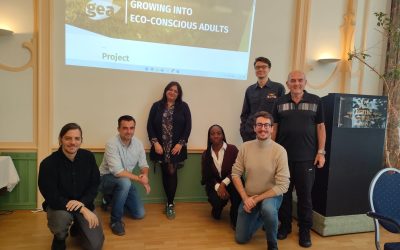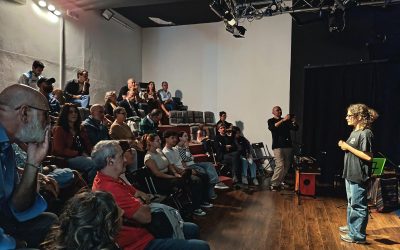Curricular internships are an essential component of university education: they promote the development of practical skills, facilitate entry into the job market, and allow students to explore their professional aspirations in a concrete way. However, the quality and effectiveness of internships vary greatly across universities, degree programmes, and professional sectors, directly impacting both the educational experience and future employability.
The MILEAGE project: toward a new culture of internships
It is within this context that MILEAGE – Mentorship development for quality practices in higher education was launched, involving universities and Non-Governmental Organisations and Civil Society Organisations in Slovenia, Finland, and Italy. The project’s goal is to improve the quality of university internships by strengthening guidance and mentoring services, enhancing the role of host organisation mentors, and developing a new model of joint support involving both university staff and host organisation personnel.
As a basis for shaping the MILEAGE model, the partnership analysed university internship support services in Italy, Finland, and Slovenia, identifying effective practices, systemic gaps, and areas for improvement.
From this analysis, a set of resources was developed for career counsellors, university tutors, and internship mentors at host organisations, aimed at ensuring more effective preparation, stronger support, and more meaningful evaluation of internship experiences.
These materials are already available online:
- Digital Toolkit for career counsellors
- Digital toolkit for study practice Coordinators
- Digital toolkit for mentors
Insights from the Report about internship supporting services at the University of Palermo
The Report about internship supporting services at the University of Palermo (UNIPA) provides an in-depth analysis of UNIPA’s curricular internship system, highlighting strengths, challenges, and emerging needs.
Strengths
- Mandatory and formally recognised: All UNIPA students must complete a curricular internship, which is integrated into their study plan and awarded ECTS credits.
- Digitalised procedures: The AlmaLaurea/UNIPA platform centralises the administrative management of internships.
- Diverse range of host organisations: Students can choose among public bodies, private companies, cooperatives, and third-sector organisations.
Challenges
- Lack of real educational support: Internship preparation is mostly administrative in nature, with little active guidance from university tutors or dedicated career counsellors.
- Poor monitoring quality: There are no structured tools to assess the quality of internship experiences offered by host organisations.
- Limited accessibility and inclusiveness: There is a lack of specific measures to support students with disabilities, from disadvantaged backgrounds, or with particular needs.
- Internships perceived as formalities: Students often see internships as administrative requirements rather than valuable educational and professional opportunities.
Identified Needs
The report highlights the importance of:
- Defining dedicated professional roles for internship guidance and support;
- Strengthening collaboration between the university and host organisations, with a focus on mentoring quality;
- Structuring reflection moments before and after the internship to connect the experience to students’ career paths.
Toward experimental internships in the Third Sector
In response to these challenges, MILEAGE is launching a series of experimental internships, hosted by carefully selected and trained Non-Governmental Organisations or Civil Society Organisation. What makes this initiative unique is not only the nature of the activities carried out by the students, but the structured path of support and guidance that accompanies them from the beginning to the end of the internship.
Non-Governmental Organisations and Civil Society Organisations were chosen deliberately: they offers a wide range of professional profiles, often under-recognised or underestimated, and can contribute to enhancing the educational value of practical experiences while promoting civic engagement, social innovation, and collaboration between universities and communities.
Are you a UNIPA student?
Check the MILEAGE internship offers on the AlmaLaurea notice board of the University of Palermo:
https://almalaurea.unipa.it/lau/annunci/bachecaannunci.aspx?lang=it&tipobacheca=TIROLAV.
About the project
MILEAGE – Mentorship development for quality practices in higher education is a project funded by Erasmus+ – KA220-HED – Cooperation partnerships in higher education.
Partners
- UNIVERZA V LJUBLJANI (Slovenia, coordinator)
- KULTURNO IZOBRAZEVALNO DRUSTVO PINA (Slovenia)
- CESIE ETS (Italy)
- UNIVERSITÀ DEGLI STUDI DI PALERMO (Italy)
- RAUHANKASVATUSINSTITUUTTI RY INSTITUTET FOR FREDSFOSTRAN RF (Finland)
- OULUN YLIOPISTO (Finland)
For further information
Read more about the project.
Contact Alessia Valenti: alessia.valenti@cesie.org.









